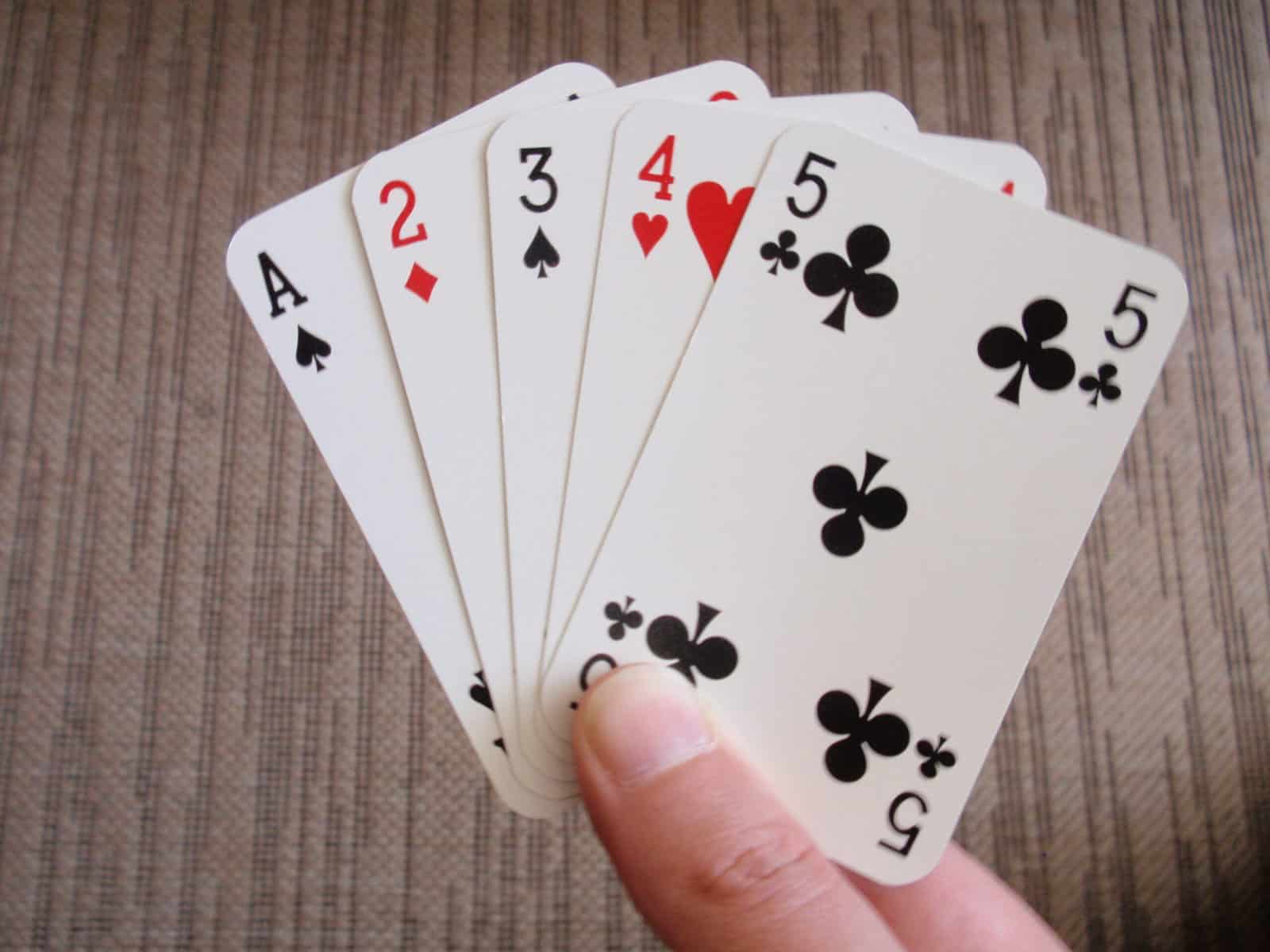Ultimate Guide to Play Cards: Fun and Educational Benefits for Kids
Welcome, fabulous parents, to your all-in-one resource on the captivating world of play cards for kids! If you’ve been on the lookout for a playful yet educational way to engage your children, you’re in for a delightful treat. This guide will serve as your happy helper, diving deep into the colorful and creative realms where play cards not only entertain but also teach valuable skills. So, let’s shuffle through this exciting journey together and discover why play cards should be a part of your child’s playtime.
Why Play Cards Are a Brilliant Choice for Kids
First things first, let’s talk about why play cards are a star pick for your young ones. Play cards are not only about fun; they are also loaded with educational benefits that can help children develop cognitive skills, math skills, strategic thinking, social skills, and so much more. They’re portable, affordable, and can be played almost anywhere—making them an ideal addition to your child’s toy collection.
What Are Play Cards?
Play cards are a set of illustrated cards used for playing a variety of games. Depending on the game, they can include numbers, shapes, colors, or characters, and they often come in themes that appeal to children, such as animals, vehicles, or fairytales.
Choosing the Right Deck for Your Child
When selecting a deck of play cards for your child, consider their age, interests, and skill level. For toddlers, you might seek decks with large, colorful images and simple concepts. Older children might enjoy more complex games that require critical thinking and strategy. Here are some key points to remember when choosing a deck:
- Age Appropriateness: Ensure the content and complexity of the game suits your child’s age. You don’t want them feeling overwhelmed or, conversely, under-challenged.
- Educational Value: Many decks are designed to reinforce learning in areas such as math, language, and memory.
- Interest-Based Themes: From dinosaurs to space, choose a theme that excites your child to keep them engaged.
- Quality and Durability: Kids are not always the gentlest of creatures. Sturdy, easy-to-clean cards can withstand the test of time (and sticky fingers!).
Top Card Games for Kids and Their Benefits
There are countless card games out there, each with its unique flair. But some have stood the test of time and continue to be favorites among families. Let’s peek at a few classic games and the benefits they offer to your kiddos:
- Go Fish: This game is fantastic for teaching young children about numbers, pairs, and sets. It also encourages memory recall and strategic thinking.
- Old Maid: With a focus on matching and memory, Old Maid is another excellent choice for youngsters, helping them improve their focus and attention to detail.
- Memory: A game of concentration and memory, this simple matching game can be played with any standard deck of play cards and is excellent for improving cognitive functions.
- Crazy Eights: This game is a little more fast-paced and is great for teaching kids about patterns, sequences, and strategy.
But wait, there’s more! Card games can be a wonderful tool for teaching life’s little lessons as well. Patience, winning and losing gracefully, and taking turns are just as valuable as the educational content of the games themselves. Plus, they are a splendid way for the whole family to bond and create memorable fun times.
Ready to step into the next round of our play card extravaganza? We’re going to shuffle through some tips for teaching your children how to play, explore even more fantastic games, and uncover the secrets to creating your own DIY play cards. And eternal high-fives to you, dear parents, for considering this wholesome activity that has numerous advantages for your beloved little gamers!
Hold onto your deck, as the fun is just beginning! Stay tuned for creative card game recommendations, how to set house rules that make sense, and ways to balance play card time with other learning activities. To ensure your child gets the best of play and education, keep on reading as we unveil the wonder of play cards.

Five Things Parents Should Know in Preparing for Play Cards
Before delving into the world of play cards with your kids, it’s beneficial to arm yourself with some insider knowledge to ensure a smooth sail into this activity. Here’s the lowdown on what you should know:
- Understand the Basics: Before introducing a new card game, make sure you have a good grasp of the rules yourself. This will help you explain the game to your kids more effectively and avoid any confusion. Children look to you for guidance, so knowing the ropes is key!
- Create a Conducive Environment: Find a quiet and comfortable space for card games. A clear table in a well-lit room or a spot on the floor with a mat can make the perfect setting for card-playing adventures. Distraction-free environments help children focus better.
- Have Patience: Some children may take longer to understand game rules or develop the required skills to play effectively. Be patient and provide them with the encouragement and support they need. Remember, the objective is fun and learning, not perfection on the first go!
- Foster Good Sportsmanship: Teach your children about fair play and sportsmanship early on. Praise them for playing well, regardless of winning or losing, and encourage them to do the same with others. This helps cultivate a positive play card experience for everyone involved.
- Balance Play Card Time: While play cards can be highly educational, balance is important. Ensure that play card time doesn’t overshadow other vital learning activities or physical exercise. Integrating variety in your child’s daily routine keeps their mind well-rounded and engaged.
Now that you’re equipped with these essential tips, you’re all set to start playing! Remember, this guide isn’t just an instruction manual; it’s a companion in creating joyful and enriching moments of learning for your kids. Enjoy the journey, and most importantly, have fun!
Thoughtful House Rules for Card Games
Crafting house rules is another important aspect of play card time. A few well-thought-out rules can help in maintaining order and ensuring that the games remain enjoyable for everyone. Here’s what to consider:
- Keep It Simple: House rules shouldn’t be complicated. The simpler they are, the easier it is for children to remember and follow.
- Be Fair and Consistent: Rules should apply to everyone equally. Consistency in enforcement helps kids understand boundaries and expectations.
- Encourage Participation: Develop rules that give each child a fair chance to participate. This might mean setting time limits for turns or having a rule where everyone gets to deal at least once.
- Safety First: Remind children to handle cards with care—no throwing or bending them. It’s important to teach them to respect the game materials.
- Engage and Adapt: Involve your children in setting the rules. This gives them a sense of ownership and makes them more likely to abide by them. Don’t be afraid to adapt rules as your kids learn and games evolve.
With these guidelines in your pocket, you’ll be well on your way to creating a family-friendly environment that’s conducive to playful learning. Remember, the essence of play cards is not only in the game itself but also in the shared experience and the skills acquired along the way.
Striking Balance with Other Activities
Integration of play card activities with other daily routines is imperative. Cards offer a unique educational approach but should complement, rather than replace, other essential learning and play activities. Here’s how to maintain that balance:
- Regular Schedule: Designate specific time slots for card games within the daily routine. This ensures that while play cards have their special time, they don’t dominate the day.
- Variety: Mix in physical activities, outdoor play, reading sessions, and creative time with card games to provide a holistic experience for your child’s development.
- Educational Integration: Use card games as an educational tool that can be seamlessly integrated with other learning exercises, such as math drills or language learning sessions.
By considering these aspects, you ensure that play cards become a treasured and balanced part of your child’s growth and learning. The magic of play cards lies not just in the flick of a wrist or the luck of the draw, but in the joy and development they bring into your child’s life. Embrace this, and let the cards lead the way to fun-filled, educational escapades!
For more great fun click here. For more information see here
Disclaimer
The articles available via our website provide general information only and we strongly urge readers to exercise caution and conduct their own thorough research and fact-checking. The information presented should not be taken as absolute truth, and, to the maximum extent permitted by law, we will not be held liable for any inaccuracies or errors in the content. It is essential for individuals to independently verify and validate the information before making any decisions or taking any actions based on the articles.




